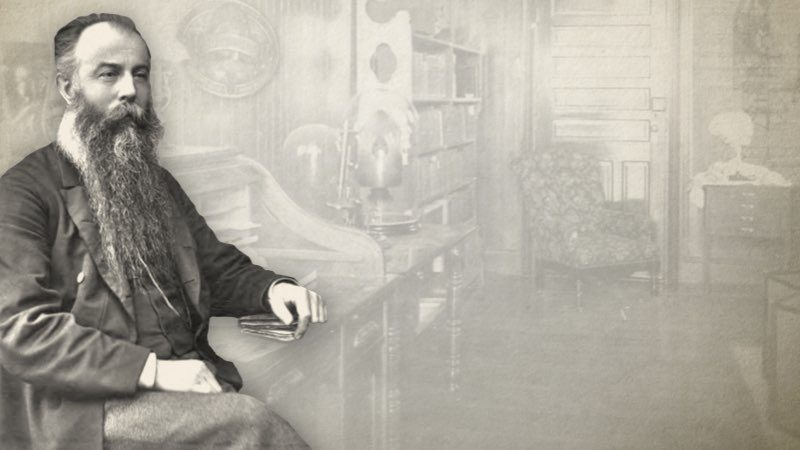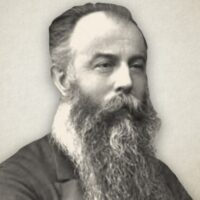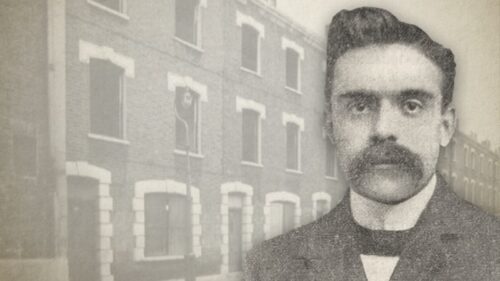
The Life And Legacy Of John Bunyan McCure
Australian Dictionary Of Evangelical Biography:
MCCURE, JOHN BUNYAN (b. Camberwell England, 5 Aug 1822). Strict and Particular Baptist minister.
McCure omits any autobiographical information prior to the age of thirteen. At this age he relates how his mother suffered from ‘rheumatic gout’ for a period of twelve years necessitating his leaving home and seeking employment. Very early in his religious experience he became preoccupied with the Calvinistic doctrine of election: ‘My trouble was now, whether I was one of the Lord’s chosen’. McCure was converted under Richard Luckin, a paedobaptist, at Woodbridge Chapel, Clerkenwell. Shortly after his conversion he became convinced of believer’s baptism, and was immersed by the Rev John Luscombe at Bethel Chapel, City Road, London. McCure preached his first sermon on Sunday 1 Mar 1840 and was married the same year at the Islington Church. He became a full-time preacher among the Strict and Particular Baptists. Intimidated out of his pastorate by creditors and affected by the claims of a wife and six children, he requested the churches of Kent and Sussex for assistance to migrate to Australia. This plan was achieved with outside assistance by means of a chaplaincy to a group of Congregational emigrants.
McCure arrived in Melbourne in Dec 1852. Disillusioned by the lack of employment and preaching opportunities he left for Geelong one week later. Here he worked as a groom and carriage driver and was soon exercising a part-time ministry. He was able to purchase land and build Mt Zion Baptist Church in 1856, becoming its full-time minister.
McCure moved to Sydney in 1861, hired the Odd Fellows Hall in Sussex St, and presided over the revival of a Strict and Particular Baptist conventicle. But a prosperity sufficient to buy land in Castlereagh fell far short of convincing the denomination of the way it should take.
Although McCure was accepted as a colleague by other Baptist ministers in Sydney, he was not considered as a representative figure by Sydney Baptists. He was described by the deacons of the Masonic Hall Baptist Church as ‘an excellent and good man but uneducated’; he and his congregation were of ‘that class known in England as of “high sentiment”. This would have been a reference to the Hyper-Calvinist convictions of both McCure and his church.[1]
The Strict and Particular Baptists persevered as small body and under McCure’s successors such as Daniel Allen (q.v.), moved in a domain of their own.
Within Australian evangelicalism, McCure was a capable Baptist representative of the Hyper-Calvinist sectarian tradition among British Baptists. He was the first missionary from the English Strict and Particular Baptists to be sent to Australia. He stood in the line of the English Hyper-Calvinists John Gill, William Gadsby and the Gospel Standard Churches.[2] Typical of the exclusivism of Strict and Particular Baptists he rejected ‘duty-faith’.[3] This was the universal human responsibility to repent and believe the gospel which was characteristic of both Arminianism and Evangelical Calvinism.[4] The message of salvation was to be restricted to the elect and not preached indiscriminately.[5] His arrival in Australia sharpened and symbolised the theological differences that existed among British Baptists which were inevitably transplanted to colonial shores. At a time when Australian Baptists were moving towards evangelical tolerance and unity, McCure stood for the remoteness and rigidity of Hyper-Calvinist Baptist secthood.[6]
John Bunyan McCure, Life in England and Australia: Reminiscences of Travels and Voyages Over One Hundred Thousand Miles; or, Forty Years in the Wilderness: A Memorial of the Loving-kindness of the Lord (London, 1876)
MICHAEL CHAVURA
——————————-
Footnotes by Jared Smith:
[1] Such is the animosity and ignorance towards high views of sovereign grace that the opponents invariably disparage the persons subscribing to it and misrepresent their teachings. Based on the printed sermons of McCure, together with his ability to raise funds, oversee the construction of chapels and minister as a faithful preacher to the Lord’s people (at home and abroad), this remark by the deacons is defamatory. It is far easier to attack a man’s character, than to contend with his views.
[2] The Gospel Standard churches formed only one group of the Strict and Particular Baptists. McCure belonged to another branch of churches represented by the Earthen Vessel magazine. It should also be noted, Hyper-Calvinism transcended denominationalism, as there were a large number of Independents, Congregationalists and Anglicans who held to the same views.
[3] High (Hyper) Calvinists do not reject the pernicious doctrine of duty-faith based on their exclusiveness. They believe that saving faith is the result of regeneration, and only those who have been brought experientially under the authority of the covenant of grace are duty bound (privileged) to exercise it.
[4] Evangelical Calvinism, otherwise known as Moderate, Modified or Mongrel Calvinism, subscribes to an entirely different covenantal framework around which they support their notions of duty-faith and the free-offer. Rather than two permanent and perpetual covenants, they believe there are three. By creating a covenant of grace in addition to the covenant of redemption, they impose upon sinners duties (taxes) and obligations which not only perverts the gospel, but renders it unfree.
[5] This is a false statement. High (Hyper) Calvinists believe the message of salvation is to be fully and freely preached to all sinners (regenerate and unregenerate), but that the gift of God in Christ is not to be presumptuously offered to anyone. The message of salvation is the preacher’s to proclaim, but God’s gift to bestow. The free offer of the gospel is the yeast of free will works religion, which is the leaven of so-called ‘Evangelical’ Calvinism—it is not ‘evangelical’, for it does not set forth a full and free gospel; nor is it Calvinism, for it does not rightly distinguish between the law of works under a covenant of works and the law of faith under a covenant of grace. High (Hyper) Calvinists do not approach sinners with a view of their election and/or reprobation, but rather, whether the Spirit of God has regenerated their souls. Those whom the Spirit has granted new life are given ears to hear, eyes to see and a faith to believe, and therefore the preacher invites them to come unto Christ to find rest unto their souls. Those who have not (yet) been born again are certainly informed of their responsibilities to God under the covenant of works and introduced to the good news of glad tidings in Christ, but the preacher faithful to his calling waits upon the Spirit of God to regenerate His people, rather than employing manipulative tactics to proselyte the unregenerate.
[6] What is termed “evangelical tolerance and unity” is characteristic of the Mongrel Calvinist churches in England which joined the Baptist Union (BU). These churches subscribed to the modified Calvinism of Andrew Fuller, eventually opening their doors to the General (Arminian) Baptists. Their hope for ‘tolerance and unity’ led to the Downgrade Controversy of the late nineteenth century, with Charles Spurgeon resigning from the BU. Such was the failure of “Evangelical Calvinism”, that by the mid-twentieth century, the majority of Particular Baptist chapels which remained belonged to the High (Hyper) Calvinists. When the Reformed Baptist movement (which began in the 1950’s) attempted to revive the dead orthodoxy, they hijacked the High (Hyper) Calvinist chapels, rewriting their history and amping up their hostility towards a set of teachings (and their teachers) to this day they do not understand. McCure did not stand for the “remoteness and rigidity of Hyper-Calvinist Baptist secthood”, but rather, held fast and earnestly contended for the faith which he believed was once delivered unto the saints. In any case, the charge of remoteness and rigidity to a set of teachings may be applied also to the “Evangelical Calvinists” of our day. They view the Scriptures with a set of ‘horse blinkers (blinders)’ restricting their vision to the narrow range of seventeenth century confessionalism (1646 Westminster/ 1689 Baptist).
John Bunyan McCure (1822-1883) was an English Strict and Particular Baptist preacher. In 1840, he preached his first sermon and tied the knot in marriage. In 1848, he was ordained pastor at Hadlow, Kent, with John Foreman bringing the charge. In 1852, he and his family removed to Australia, where they served in gospel ministry for sixteen years. This came to a sudden end with the unexpected death of Mrs. McCure, whose last wish was for her children to be raised in England. Mr. McCure was the first Evangelist (Missionary) to be sent from the English Strict and Particular Baptists to Australia. In 1872, after returning to England, he was appointed pastor of Eden Chapel, Cambridge.






